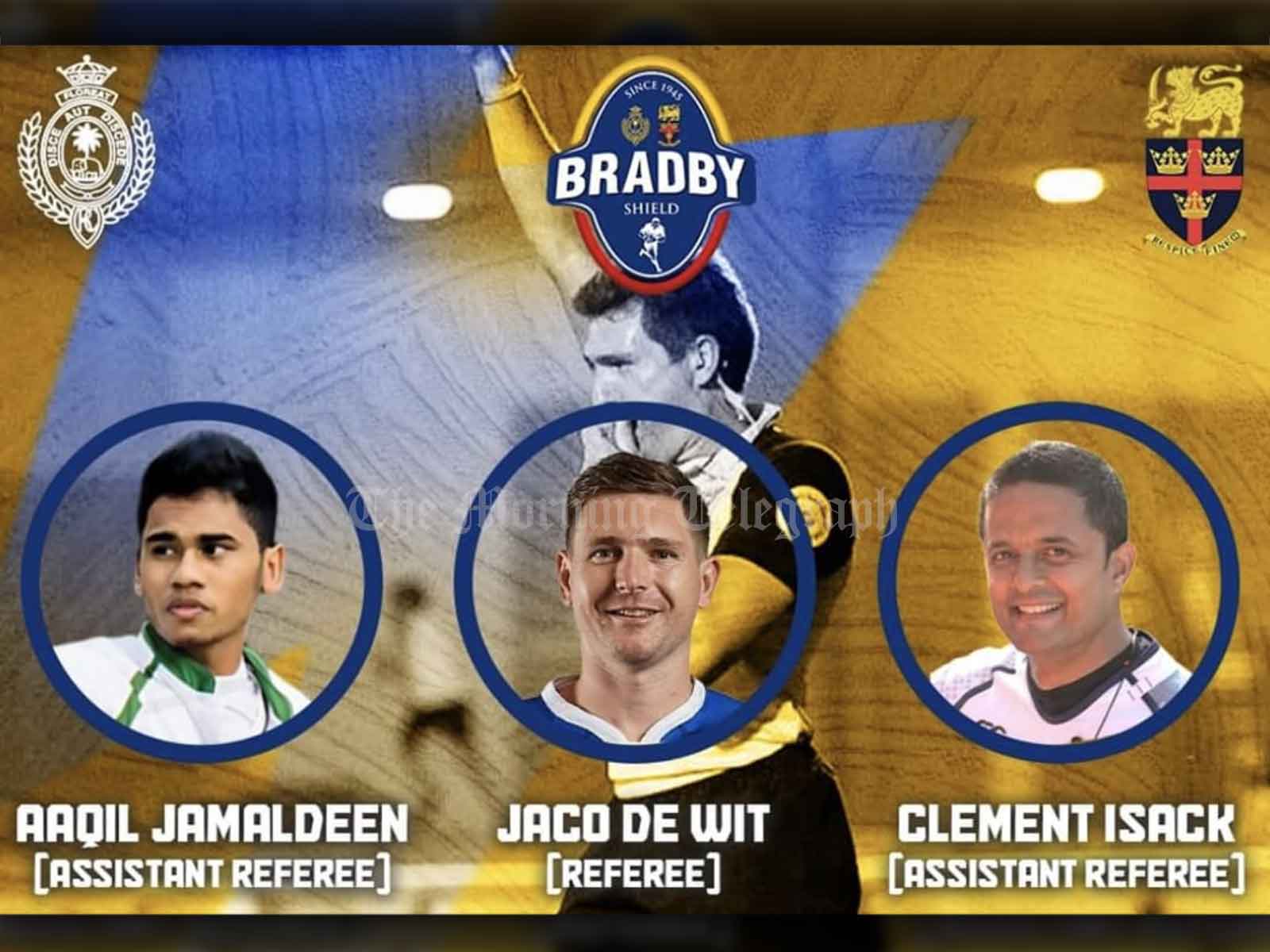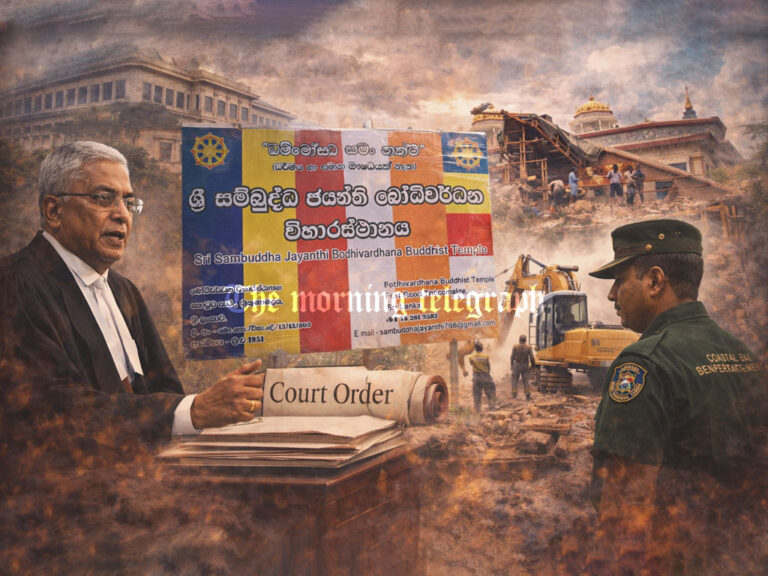
- Who needs rules when you can create a spectacle instead?
The concluded first leg of the 78th Bradby Shield encounter concluded at the Royal College Sports Complex was viewed as a thrilling encounter with Trinity College pulling off a stunning 17 points to 16 win over Royal College in what was widely acclaimed as a brilliant free flowing game, sans any yellow or red cards being dished out to any players.
However, as the game concluded and the post-match footage was reviewed, it became glaringly apparent that the match officials even though dishing out a spectacle had compromised multiple laws pertaining to the game that went unnoticed. Had local referees been in charge, the outcome would likely have been very different, with those referees facing significant backlash for these such errors.
Meanwhile, a detailed post-match analysis, featuring video footage highlighting numerous glaring errors made by foreign referee Jaco De Wit, was shared on social media by Dinka Peiris, President of the Sri Lanka Association of Rugby Football Referees. The analysis sparked significant discussion across social media platforms. Peiris emphasized that his intention in sharing the analysis was purely educational, though some interpreted it as a case of sour grapes.
The Morning Telegraph was able to contact one of the Match Officials at the game Assistant Referee Clement Isaac who provided the strategy that was employed by the three match officials in control of proceedings during the concluded encounter.
” We ignored technicalities in order to deliver a spectacle.The referee is the sole judge of fact and law and can decide what to apply and what not to apply. We wanted to referee the game and not be policemen.”
Assistant Referee Isaac also shared a quote from the world famous Rugby Referee Nigel Owens, which seems evident that they were truly inspired by his sentiments. Owens quote reads “The easy job of refereeing is learning the laws of the game and going out there and blowing the whistle. That’s the easy part; but if you want a game of rugby that everybody can enjoy, is a spectacle, and want people to come in and fill the stadiums and enjoy the wonderful game of rugby, then you need to get the balance right of when not to blow that whistle, and to learn when you need to.”
Taking to Facebook Assistant Referee Isaac posted “Thank you @royalrugbyofficial & @tck.rugby for a wonderful show of skill, discipline and camaraderie. Grateful for the opportunity to have played a small part in producing something spectacular, and humbled by the response from all the good people out there.I’m certain we put a smile on William Webb Ellis and Edward Lawrence Bradby up in Heaven and may the spirit of the Bradby Shield and the values promoted by these two great institutions continue to inspire us to be the best we can be in everything we do.”
A respected former referee when contacted to obtain his views on this witnessed Bradby rugby spectale speaking on condition of anonymity said “This approach to officiating suggests that the World Rugby (WR) law book is irrelevant, as match officials can arbitrarily decide what rules to enforce and which to ignore. It prioritizes creating a spectacle over adhering to the established laws of the game, leading to inconsistency in interpretation from one official to another. This biased method of officiating allows for different standards of enforcement throughout the 79-minute game, where one minute something is called, and the next it isn’t. While local rugby fans demand consistency, fairness, and uniform interpretation from their officials, these three officials have essentially disregarded those expectations by taking the law into their own hands to entertain the crowd. In doing so, they’ve set a precedent where the focus is on entertaining spectators rather than enforcing the rules. Cards and technology, which local fans consistently advocate for, seem unnecessary in this new approach, despite World Rugby’s ongoing efforts to implement more technology and new laws as of July 1st. Now, with this precedent set, it appears match officials can choose what to enforce based on their whims, simply to bring smiles to the faces of the spectators. I wonder what spectators and viewers on television would have had to say if the same was employed by our local rugby referees.”
However in the lead-up to the game, there was considerable discussion surrounding the organizing committee’s decision to exclude local referees from officiating the match, a move they hadn’t made in 13 years. The last time a foreign referee was brought in for a Bradby Shield leg was in 2011 when South African Jonathan Kaplan officiated the game in Pallekele. The situation escalated further when Shanaka Amarasinghe, The Papare’s esteemed and knowledgeable television commentator, arguably the best in the local industry, was suddenly removed from his match commentary duties at the last minute, despite his services being confirmed a week earlier. These decisions were believed to have been influenced by Royal College’s recent loss to Isipathana College, where a controversial match-winning penalty was awarded to Isipathana after the on-field referee consulted the Television Match Official (TMO). Amarasinghe later provided a detailed explanation of the incident, which was well-received by many viewers, though it sparked frustration among a majority of Royal College supporters and fans.
Regardless of the circumstances, the Bradby Shield encounter remains a private affair, contested between two prestigious colleges, and unquestionably stands as the premier event on the schools’ rugby calendar.
If the Bradby Shield organizing committee and match officials opted to run the game according to what suited them best, it seems their guiding principle might have been, “Who needs rules when you can create a spectacle instead?”
It will be intriguing to see if the same level of spectacle and consistency is maintained when the second leg of the Bradby Shield takes place in Kandy two Saturdays from now.




